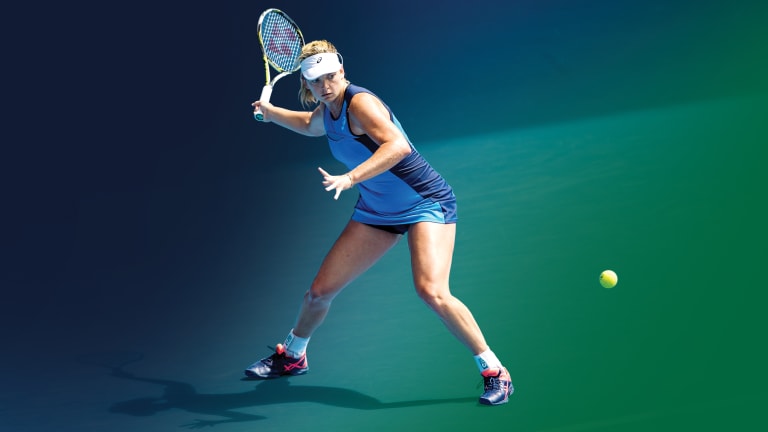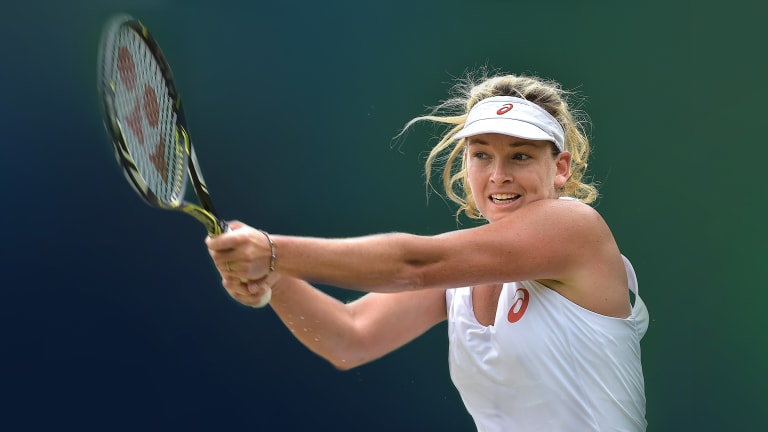For most tennis players, beating the top seed at a Grand Slam tournament is a pretty big deal. Pulling off a major upset usually brings out a mix of shock, relief, elation, joy, thankfulness—and a little more shock. By the time a player has fallen over, stood up, put her hands over her face, stared bug-eyed at her coaches and finally jogged to the net, she has run the emotional gamut.
That’s not how it worked for CoCo Vandeweghe at this year’s Australian Open. In the fourth round, the 25-year-old Californian blew past top seed Angelique Kerber, 6-2, 6-3, in 68 minutes. It was her first win over a world No. 1, and when it was over the local TV commentator screamed, “She’s done it!”
Yet as Vandeweghe watched Kerber’s last return of serve float long, she was the picture of nonchalance. She looked over to her player’s box, shrugged her shoulders, and turned her palms upward, as if to say: “So, that just happened.”
When Vandeweghe was asked how she felt, she didn’t tear up, feign speechlessness or gush about how she had played the match of her life. Instead, as she put it, “Well I guess I faked it a lot because I was feeling like crap out there, but, you know, ‘fake it till you make it.’”
By now, nine years after Vandeweghe tore through the junior U.S. Open without dropping a set as an unseeded 16-year-old, tennis fans in the U.S. have come to expect the unexpected from her. After her semifinal run in Melbourne, they’re starting to expect the unexpectedly brilliant.
Unlike most of her tight-lipped peers, Vandeweghe doesn’t fly solo during matches. Whether it’s with a sarcastic smile or an unbridled roar, she gives us regular status updates on how she’s feeling. When she wants more love from the crowd, she cups her hand behind her ear and demands it. Vandeweghe will smash her racquet to smithereens after a bad game, and chuck it high into the crowd to celebrate a victory. Hugs, smiles and kisses after a match generally aren’t her style; a hard handshake is enough.
“It’s just another person in front of me,” Vandeweghe says of her opponents. “Someone who is standing in the way of me achieving my goals.”
At the 2015 U.S. Open, Vandeweghe became the first player to do an interview in the middle of a match, with ESPN’s Pam Shriver. Two months earlier, at Wimbledon, she made headlines by calling NBA star Carmelo Anthony “soft.” It’s an accusation that few have directed at Vandeweghe, who hits as hard, and plays with as much explosive power, as anyone in the WTA. Two years ago, during Wimbledon, the Observer proclaimed Vandeweghe the “Ronda Rousey of tennis,” after the body-slamming mixed martial arts star.


